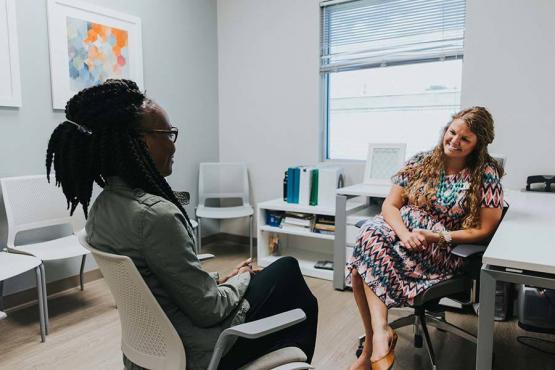To What Extent Is Curing Opiate Addiction
If you have not yet been to opiate addiction treatment or to rehab of any kind, you may have some vague ideas about what is supposed to go on there. You probably have a little information about detox and you know that you will do a lot of behavioral therapy. You probably know some things about medication-assisted treatment, as well, because opiate withdrawal symptoms and cravings can be quite hard to go through without it. However, if you think that opiate addiction treatment is all about curing opiate addiction, you don’t yet have a complete understanding of how things work.
Opiate Addiction Cannot Be Cured
Yes, that’s right. There is no medically established cure for opiate addiction because, as the National Institute on Drug Abuse notes, addiction is a relapsing, chronic disease. This means that it will be present in some form for the remainder of your life.

For example, type 2 diabetes is a chronic illness and if a person loses weight and monitors their diet, the symptoms can be minimized to the point that it feels like the disease has been cured and no medication is needed. However, if that person gains the weight back, the diabetes will recur because it wasn’t truly cured. Also, if the person eats a big meal, their blood sugar will spike higher than that of a person without it.
Instead, the Focus Is Management
Rather than curing opiate addiction, opiate addiction treatment aims to help participants manage their chronic addiction disorder. Of course, one of the goals is to assist patients in stopping their use of opiates and other substance. But, again, abstinence from drugs doesn’t mean the disease is cured. Per the National Institute on Drug Abuse, the other aim is to “return people to productive functioning in the family, workplace, and community.”
Does It Work?
Yes. Of course, there is always a chance of relapse, but that doesn’t indicate a failure of treatment. Diabetics have relapses as well. As in those instances, it is a signal that treatment should be restored, modified. Or, an alternate treatment should be explored.
If Curing Opiate Addiction Isn’t the Goal of Opiate Addiction Treatment, What Is?
You may wonder why curing opiate addiction isn’t the primary aim of opiate addiction treatment. Certainly, you may ask, the goal of any medical treatment is to work toward a cure? That’s actually not the case. In instances of chronic disease, of which addiction is one, treatment is about developing the tools and making the lifestyle changes necessary to manage the symptoms. As opiate addiction treatment cannot focus on curing opiate addiction, The goal is to decrease or stop the use of opiates and other substances and to assist participants in reclaiming control of their lives, so they can return to their family, community, and workplace to function productively.

Does Treatment Prevent Addiction Symptoms from Returning?
Unfortunately, it does not. But, you should keep in mind that no treatment for chronic disease erases the chance of relapse. In fact, the rates of relapse provided by the National Institute on Drug Abuse indicate the rates of symptom recurrence for addiction are comparable to those of other chronic diseases, as illustrated.
- Asthma: 50-70 percent
- Hypertension: 50-70 percent
- Drug Addiction: 40-60 percent
- Type 1 Diabetes: 30-50 percent
Does Relapse Mean Opiate Addiction Treatment Has Failed to Achieve Its Goal?
No. Because treatment is not only possible but probable, it is something that opiate addiction treatment programs account for, as do treatment providers for other chronic diseases. According to the National Institute on Drug Abuse: “Successful treatment for addiction typically requires continual evaluation and modification as appropriate.” If a patient had an asthma attack, despite having been treated, you wouldn’t feel that treatment had failed.
If Relapse Isn’t a Failure, What Is It?
Of course, no opiate addiction treatment center aims for relapse, but they know it is likely. Rather that consider it a failure to achieve an established goal, they consider it a sign that treatment should be adjusted, or begun again. It could also mean that a completely alternate treatment should be attempted instead. Rehab helps participants prepare for a recurrence of symptoms, so that relapses are limited and treatment is continued as soon as possible
Curing Opiate Addiction Is My Number One Reason for Attending Opiate Addiction Treatment; Is This Reasonable?
If you are interested in opiate addiction treatment, you know that the time has come to end your use of opiates and other substances. You are probably experiencing the negative effects of your drug use on the physical, mental, emotional, social, occupational, and even legal components of your life. That’s a natural side effect of drug use. As you know the cause of the problems, you likely want to eliminate it forever, which is why you are focusing on curing opiate addiction. However, that isn’t something that opiate addiction treatment can currently provide, and it may never be able to do so.

Why Can’t I Get a Cure?
All addiction, opiate included, cannot be cured because it is a chronic disease, like diabetes, Crohn’s disease, and asthma. These diseases are long-term, often continuing for an entire lifetime, and they naturally have points of symptom recurrence, or relapse.
Can You Give Me an Example of a Chronic Disease and Its Treatment?
Asthma, for instance, cannot be cured and doctors warn sufferers not to use any product or treatment that claims it can do so. Instead, asthma is treated, which involves both medication and lifestyle changes.
Physicians advise asthma sufferers to maintain a healthy lifestyle with nutrition, proper sleep, and exercise. They encourage patients to be mindful of symptoms and what triggers them and to avoid these things. And, they ask patients to treat conditions that may worsen asthma as well. In addition, they use medication.
But, that doesn’t mean a person who does all of this won’t ever have another asthma attack because it can’t be cured. Treatment for addiction doesn’t mean that participants won’t ever relapse either.
What’s Wrong with Expecting a Cure?
If you desire something that doesn’t exist, you will ultimately be disappointed and this will undermine the effectiveness of any course of treatment. When an inevitable relapse occurs, it is probable that you will consider your efforts to control your addiction failed. If you feel like treatment has dialed you, you are much less likely to return to it and will ultimately slide right back into your old opiate abuse patterns. You must be reasonable about your expectations and let go of your focus on curing opiate addiction.